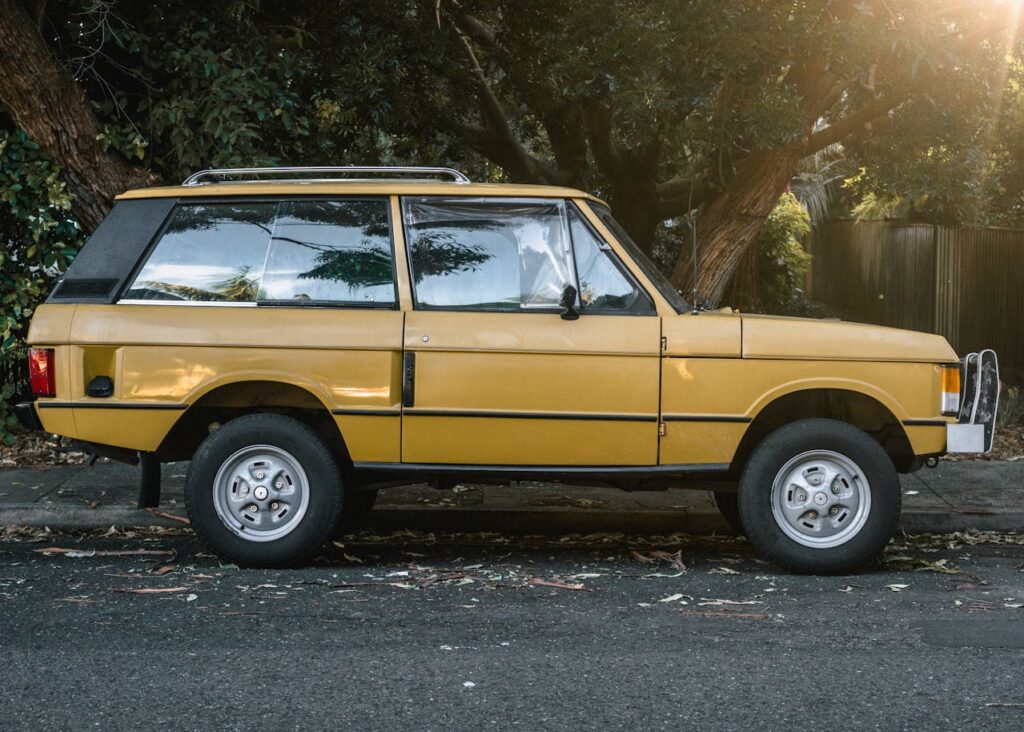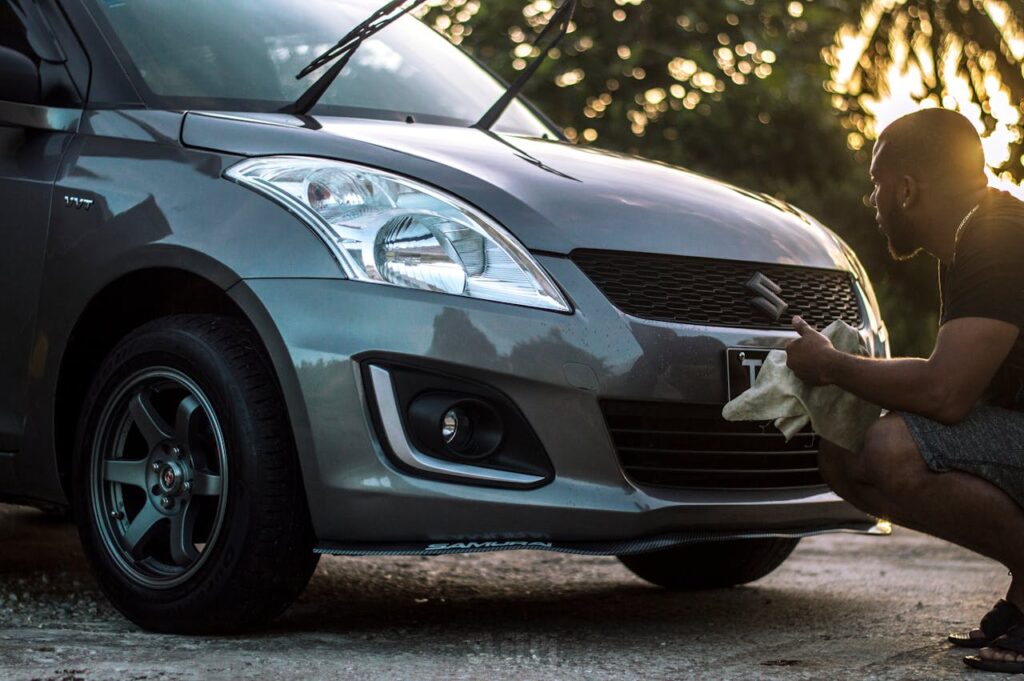People ship cars long distances for many reasons. Some relocate for work or family, while others buy vehicles online from sellers across the country. Military families often move between bases. No matter the reason, choosing the right company for shipping a car is important. Your vehicle is valuable, and you want it safe from pickup to delivery. Working with experienced shippers protects your investment. Learn the key factors that influence cost, the different transport options available, what insurance covers, how to prepare your vehicle, and why All Around Moving & Storage is a trusted choice for shipping cars safely across the country.
How Does Cross-Country Car Shipping Work?
Cross-country car shipping starts with gathering quotes from trusted companies to compare pricing and services. Once you choose a provider, you select a transport method, such as an open or enclosed carrier, based on your needs and budget. After booking, you prepare the vehicle by cleaning it, removing personal belongings, and documenting its condition with photos. On pickup day, the driver meets you for an inspection before loading the car for transport.

Cross-country shipping refers to moving a vehicle over long distances, often spanning several states or coast-to-coast. At the same time, shorter-haul transport covers fewer miles but follows the same general process. Coordination can be handled directly by a moving company or through a partner carrier, which works with vetted drivers nationwide. Throughout transit, you are informed of progress until the car arrives. Upon delivery, you inspect it again to confirm its condition before completing the process.
Understanding Quotes and Cost Factors
Your shipping cost depends on several elements.
Distance and Route Complexity
The longer the shipping distance, the higher the cost, though cost-per-mile often decreases for extended trips. For example, a 500-mile trip may average $1.00 per mile, while 2,500 trip may drop to $0.60 per mile. Complex routes with detours or limited access can also raise the price.
Location
Pickup and delivery location impact cost. Urban areas often have lower rates due to easier carrier access and higher demand. Rural areas, mountainous roads, or high-altitude routes may require specialized equipment or extra travel, which increases pricing. Remote locations can also extend scheduling time for pickup or delivery.
Timing and Seasonality
The time of year significantly affects shipping rates. Summer and early fall see higher prices due to increased moving activity. Winter can also raise costs in snowy or icy regions, where carriers face slower travel. Planning ahead and booking during off-peak months can help secure lower rates.
Type of Vehicle and Modifications
Larger vehicles like SUVs, trucks, or vans require specialty moving and typically cost more to ship because they take up extra space and add weight. Modifications such as lift kits, oversized tires, or custom bodywork can also require special handling or equipment, further increasing the price of cross-country vehicle transport.
Cost-per-mile rates vary by distance. Short hauls under 500 miles often average around $1.00 per mile, medium hauls range from $0.75 to $0.90, and long hauls can drop to $0.50–$0.70. Request quotes from multiple providers, compare inclusions like insurance and delivery time, and confirm all fees upfront for accuracy.

Transport Options: Open vs. Enclosed Carriers
When shipping a car across the country, you’ll typically choose between open and enclosed carrier transport. Open carrier transport is the most common and affordable option. Vehicles are loaded onto an open trailer, often alongside several others. This method offers standard protection against most road hazards and works well for everyday cars, SUVs, and trucks. It’s widely available, making it easier to book quickly.
Enclosed carrier transport offers a higher level of protection by placing vehicles inside a covered trailer, shielding them from weather, road debris, and potential damage. It’s often chosen for luxury cars, antiques, classic vehicles, or any high-value model. Enclosed transport costs more and may require more time to schedule due to fewer trucks offering this service. Open carriers typically move faster since more are available on the road. Enclosed carriers prioritize maximum protection but may have longer lead times. The best choice depends on your budget, timeline, and how much protection your vehicle needs during the cross-country trip. Both methods are safe when handled by reputable carriers, but the added security of enclosed shipping can offer peace of mind for valuable or delicate vehicles.

Shipping Logistics and Scheduling
Booking your car shipment well in advance is important, especially during high-demand seasons like summer or early fall. Early scheduling gives you more carrier options and better rates. When planning, decide between door-to-door delivery, where the carrier picks up and drops off at your chosen locations, or terminal-to-terminal service, which requires meeting at designated facilities.
On moving day, expect a call or message from the carrier with an arrival window. The driver will review and sign documentation with you, including a condition report. A final walk-around inspection ensures both parties agree on the vehicle’s state before loading. Being prepared and present during this process helps avoid delays and ensures your shipment starts easily.
Insurance and Liability Coverage
Strong carrier insurance is important when shipping a car across the country. Most professional carriers are required to carry liability coverage that protects your vehicle against damage during transport. However, policies can vary, and some may not cover environmental damage or items left inside the car. Always review the carrier’s insurance certificate and understand exactly what’s included. Contact your own auto insurer to check if temporary extended coverage is available for added protection.
Before pickup, document your car’s condition thoroughly. Wash the vehicle, take clear, dated photos from multiple angles, and note any existing scratches or dents. Complete this inspection with the driver present and ensure it’s recorded in the bill of lading. Accurate documentation is your best safeguard if you need to file a damage claim after delivery.
Preparing Your Vehicle for Cross-Country Shipping
Preparing your vehicle properly helps ensure a successful shipping process and reduces the risk of disputes. A clean car allows for an accurate inspection and clear documentation of its condition before transport. Follow this checklist to get your car ready:
- Clean the vehicle inside and out for better visibility during inspection.
- Remove all personal belongings and valuables to prevent damage or loss.
- Keep the fuel tank at about one-quarter full to reduce weight while allowing for loading and unloading.
- Fix any maintenance issues, including fluid leaks, tire pressure, and battery charge.
- Disable alarms and toll devices to avoid delays.
- Take dated photos and record the pre-shipment condition with the driver present.
These steps protect both you and the carrier, making claims easier to resolve if unexpected damage occurs during transit.

Common Mistakes to Avoid When Shipping a Car
Avoiding common mistakes can make shipping a car across the country much easier. Keep these points in mind:
- Not booking early enough – Waiting too long to schedule often leads to delays and higher costs, especially during peak moving seasons.
- Overlooking insurance verification – Failing to confirm coverage can leave you unprotected if damage occurs during transport.
- Ignoring preparation instructions – Leaving personal items inside or skipping basic maintenance may delay pickup or increase the risk of damage.
- Failing to review the contract – Skipping the fine print can cause surprises with fees, delivery timelines, or shipper responsibilities.

Why Trust All Around Moving & Storage for Shipping a Car
All Around Moving & Storage provides proven expertise in shipping a car, with reliable service, strict safety protocols, and vetted drivers supported by transparent pricing that eliminates hidden fees. Partnerships with trusted carriers such as Montway and National Van Lines provide nationwide coverage backed by experienced professionals. Customers receive live support, proactive updates, and personalized guidance at every stage, ensuring that vehicles, whether standard or high-value, are handled with care and delivered safely. Free quotes are available for those seeking tailored advice before booking.

